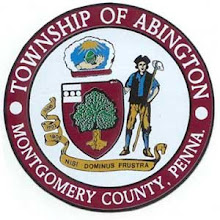While I addressed Larry Matteo's Memo in the Dear Residents letter, I believe it is worth repeating a few observations, as well as share a new observation.
To reiterate my prior response regarding Larry Matteo's claim that his office had been inundated with anonymous emails regarding commercial vehicles in residential neighborhoods, the Memo was the first and only time he has ever acknowledged that he received any emails/inquiries into this Zoning violation. I did send more than one email to Larry Matteo regarding this issue. The first couple of emails were simple inquiries as to whether the initial vehicle was permitted pursuant to the Zoning Ordinance and why, when the initial resident called to inquire about the same, she was met with the indefensible and improper questioning by James Salanik. As Larry Matteo choose not to respond and our questions went unanswered, new questions arose, yet Larry Matteo never once answered these legitimate questions submitted to his Abington Township email address by a tax paying resident. He did not even take the time to even reply with a "no comment" or "please call to discuss". Instead he ignored every email sent to him and then turned around and pointed a finger at me for asking legitimate questions, as if I did something wrong or crazy.
Moreover, the emails he attached to his Memo did not indicate that the Township Manager had sent me an email stating that a letter had been sent to the owner of the vehicle to either park his vehicle in a proper structure or remove it which is exactly what the below Ordinance says must be done. In addition, Larry Matteo failed to share a similar email from Carol DiJoseph, the President of Board of Commissioners, in which she too wrote that a similar letter had been sent. If two letters were sent (two months apart) directing the owners to either park their commercial vehicles in an approve structure or remove them, how can Larry Matteo say these vehicles conform to the Ordinance? Why did it take over fours or five months to come to this conclusion after two letter were sent saying otherwise? Sounds like a rationalization of preferential treatment, doesn't it.
In the Memo, Larry Matteo says that "these vehicles" are not in violation of the Zoning Ordinance. However, I don't see where in the Zoning Ordinance that is says that owners with vehicles that contain business advertisements are permitted to "cover" the business advertisements. Again, here is the Zoning Ordinance:
"Commercial vehicles less than twenty-five (25) feet in length are not permitted to contain business advertisement unless parked in approved structures".
The ordinance does not say that vehicles may not "display" business advertisements, it states that vehicles "...are not permitted to "CONTAIN" business advertisements, unless parked in approved structures". More importantly, it DOES NOT state that vehicles are not permitted to CONTAIN business advertisements, unless covered. Display and contain are two distinctly different concepts, as is "approved structures" and "covering". More importantly, the Ordinance is a conditional ordinance. In other words, the conditional word is "unless", and the condition is that a vehicle that contains business advertisements is not permitted unless it is parked in approved structures. The mere fact that the business advertisements are covered does not meet the mandate and condition that they be parked in approved structures.
In addition, if this is allowed by the ordinance, then Larry Matteo would not have needed to qualify his position by saying "Both vehicle owners do cover-up the commercial advertising, which is permitted pursuant to the suggestion of our Township Solicitor". The suggestion???? Why does the Township Solicitor need to suggest to cover these vehicles? Does he not understand the conditional nature of this Ordinance, or that this Ordinance has been actively enforced up until the time that a "long-time" resident parks his commercial vehicles in a residential neighborhood?
As you know, this is a Zoning issue. When one wants to build or improve their property outside the scope of the Zoning Ordinance, a resident must apply for a variance, and neighbors are notified and given an opportunity to voice any concerns and objections to the variance application. It appears that a "VARIANCE" was granted in this instance without any such notification. Whether the Township realizes it or not, or whether they care to admit it, they have now established a precedent for obtaining a variance without the required notification of neighbors.
Wednesday, July 1, 2009
Subscribe to:
Post Comments (Atom)


No comments:
Post a Comment